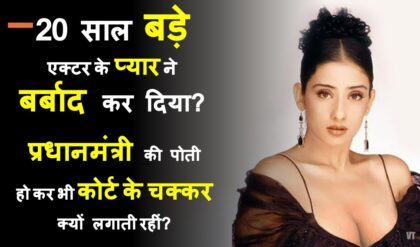The tragic case of the Kolkata trainee doctor has captured national attention, highlighting the complexities of justice, societal attitudes towards violence, and the role of law enforcement in addressing heinous crimes. Recently, the entry of Pawan, an executioner known for his controversial past, into this case has added a new layer of intrigue and concern. His involvement raises questions about the implications of using individuals with a history of violence in the pursuit of justice and the broader societal impact of such actions.
The Kolkata trainee doctor case revolves around a young medical professional who was brutally attacked, leading to severe injuries and a public outcry for justice. The incident not only shocked the local community but also resonated with people across the country, igniting discussions about the safety of women and the need for stricter laws against violence. As details of the case emerged, it became evident that the attack was not an isolated incident but part of a larger pattern of violence against medical professionals, particularly women, in India.
Pawan’s entry into the case has sparked a mix of reactions from the public and media. Known for his past as an executioner, Pawan has a reputation that precedes him. His involvement in the case raises ethical questions about the role of individuals with violent backgrounds in the justice system. While some may argue that his experience could bring a unique perspective to the investigation, others express concern that his presence could further perpetuate a cycle of violence and retribution.
The decision to involve Pawan in the Kolkata trainee doctor case has drawn criticism from various quarters. Many believe that bringing someone with a history of violence into a sensitive case undermines the principles of justice and rehabilitation. Critics argue that the justice system should focus on reforming individuals rather than relying on those who have committed violent acts in the past. This perspective emphasizes the need for a more compassionate approach to justice, one that prioritizes healing and understanding over vengeance.
Supporters of Pawan’s involvement, however, argue that his unique insights into the criminal mind could aid law enforcement in understanding the motivations behind such brutal acts. They contend that his experience could provide valuable information that might otherwise remain hidden. This viewpoint raises important questions about the balance between justice and morality. Is it acceptable to use individuals with a violent past to achieve a greater good, even if it means compromising ethical standards?
The media’s portrayal of Pawan’s entry into the case has also played a significant role in shaping public perception. Sensational headlines and dramatic narratives can often distort the reality of a situation, leading to a polarized view of the individuals involved. In the case of Pawan, the media has focused on his past and the potential for violence, overshadowing the complexities of the case itself. This phenomenon highlights the responsibility of the media to report accurately and sensitively, particularly when dealing with issues of violence and justice.
The Kolkata trainee doctor case has also reignited discussions about the safety of medical professionals in India. The brutal attack on the young doctor is a stark reminder of the challenges faced by those in the healthcare sector, particularly women. Reports of violence against doctors have been on the rise, prompting calls for better protection and support for medical professionals. The involvement of Pawan in this case underscores the urgent need for systemic changes to ensure the safety of those who dedicate their lives to caring for others.
Moreover, the case has sparked a broader conversation about societal attitudes towards violence and retribution. The public’s fascination with figures like Pawan reflects a deeper cultural narrative that often glorifies violence as a means of achieving justice. This mindset can perpetuate cycles of violence and hinder efforts to create a more peaceful society. It is essential to challenge these narratives and promote alternative approaches to justice that prioritize healing and reconciliation.
As the investigation into the Kolkata trainee doctor case unfolds, it is crucial for law enforcement and the legal system to remain focused on the principles of justice and fairness. The involvement of individuals like Pawan should be carefully considered, weighing the potential benefits against the ethical implications. The goal should be to seek justice for the victim while also fostering an environment that promotes healing and understanding.
The case also highlights the importance of community involvement in addressing issues of violence and safety. Local communities must come together to support victims and advocate for systemic changes that prioritize safety and justice. Grassroots movements can play a vital role in raising awareness about the challenges faced by medical professionals and pushing for reforms that protect their rights and well-being.
In conclusion, the entry of Pawan into the Kolkata trainee doctor case has sparked a complex and multifaceted discussion about justice, violence, and societal attitudes. While some may view his involvement as a potential asset, others raise valid concerns about the ethical implications of using individuals with violent pasts in the pursuit of justice. As the case continues to unfold, it is essential for all stakeholders to prioritize the principles of fairness, compassion, and healing, ensuring that the focus remains on seeking justice for the victim and addressing the broader issues of violence in society. The tragic circumstances surrounding the Kolkata trainee doctor serve as a reminder of the urgent need for systemic change and a collective commitment to creating a safer, more just world for all
Watch video:





